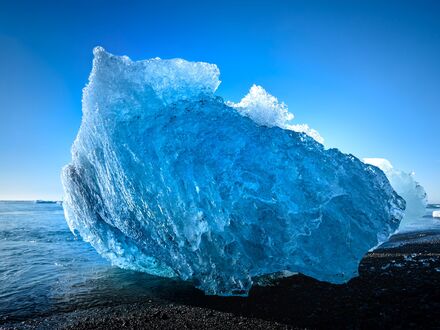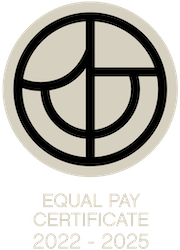Mapping Arctic Research in Iceland
Grant allocations to Icelandic participants in Arctic research from domestic and international funding schemes the last decade.
The scope of Arctic research in Iceland has been increasing during the past decade and the amount of grants allocated to Arctic research projects has risen. This report contains an overview of governance of Arctic policy in Iceland and a profile of Arctic research performers, such as universities, institutes, companies and infrastructure. An analysis of both domestic and international funds supporting Arctic research is the main content of the report. Both domestic and international funds were examined, however the main focus was on the Icelandic Research Fund and EU Horizon 2020. Selected Arctic research projects with Icelandic participation and international platforms that serve Arctic-related issues are described.
DOMESTIC FUNDS
- Total amount granted to Arctic research from all national funds in the years 2009-2019 was 1,493,200,788 ISK.
- The Icelandic Research Fund was by far the biggest domestic fund, contributing 1,180,897,000 ISK, which is 79.1% of all Arctic research grants.
- The financial contribution to Arctic research from the Icelandic Research Fund was 6.93% of its total allocations.
- Arctic research projects within the University of Iceland received 70.1% of the total allocation to Arctic research from the Icelandic Research Fund.
- A significant majority, or 94.3% of Arctic research projects funded by the Icelandic Research Fund, were in the field of science and technology - 71.9% being in natural and environmental science and 22.3% in engineering, technical sciences and sciences. Only 5.7% were allocated to humanities and social sciences.
INTERNATIONAL FUNDS
- In this report the focus on international funding is the EU Horizon 2020 programme. The total sum granted by Horizon 2020 to Icelandic participants for Arctic research was €7,322,932 (992,914,422 ISK) out of a total of €120,398,311 during the period 2014-2020.
- The percentage of funding to Arctic research projects out of the total funding from Horizon 2020 to Icelandic participants was 6.08%.
- The distribution of total Arctic research funding to Icelandic participants from Horizon 2020 is more evenly distributed between companies and institutes, compared to the national competitive funds. ICEWIND and the Stefansson Arctic Institute have each received over 20% of the grant allocation to Arctic research from the Horizon 2020 programme.
- The participants with most participation instances in Horizon 2020 Arctic projects are Arctic Portal (six instances), the Agricultural University of Iceland (four instances) and the University of Iceland (three instances).
- The biggest Horizon 2020 Arctic projects with Icelandic participants are the NJORD, JUSTNORTH and INTERACT projects, which received over 10% of the funding.
- For FP7 the total allocation to Icelandic participants, for Arctic research projects was €2,038,363 (328,244,676 ISK) out of a total of €67,591,003, which resulted in 3.02%. For FP6 there were no Arctic research projects funded. These results showcase an increased activity in Icelandic participation in Arctic research projects funded by the EU Framework Programme on research and innovation. Combined, FP7 and Horizon 2020 have granted €9,361,295 (1,321,159,098 ISK) to Arctic research in Iceland.
KEY TAKEAWAYS
- The total amount of funding for Arctic research projects during the last decade from the domestic funds (2009-2019), and the past two EU Framework Programmes on research and innovation (2009-2020), amounts to 2,814,359,886 ISK.
- When comparing the largest sources of Arctic research funding, the EU Framework Programme has contributed the highest amount for Arctic research projects in Iceland. The average annual allocation of the largest domestic source of funding for Arctic research projects, the Icelandic Research Fund in the years 2009-2019, was 118,089,700 ISK, while the yearly average allocation from the international EU Framework Programmes on research and innovation (FP7 and Horizon 2020) in the years 2009-2020 was 120,105,373 ISK.
- When comparing the Icelandic Research Fund and Horizon 2020, the proportion allotted to Arctic research projects has been at a similar level for the two most significant funding schemes, 7% for the Icelandic Research Fund and 6% for Horizon 2020. The funding pattern of the Horizon 2020 is however more diverse than the Icelandic Research Fund. Together these two main funding schemes create a wide-range research platform for Icelandic research entities with both consistent and various partners.
- Grants from domestic funds to Arctic research are mostly distributed to universities and institutes located in and near the capital area, in contrast to grants from international funds that are mainly extend ed to institutes in the northern part of Iceland, such as Akureyri municipality.
- Access to strong competitive research funds is highly important and necessary for Arctic scientists but it is not sufficient. For Arctic research seeking knowledge on rapid natural and societal changes comprehensive and consistent monitoring and observing is also needed to create a time-series of events and observations. Research institutes and their infrastructure have an essential role in observation and monitoring and they cannot rely on short-term research funding for this kind of long-term mission. A targeted policy addressing this challenge is needed.



